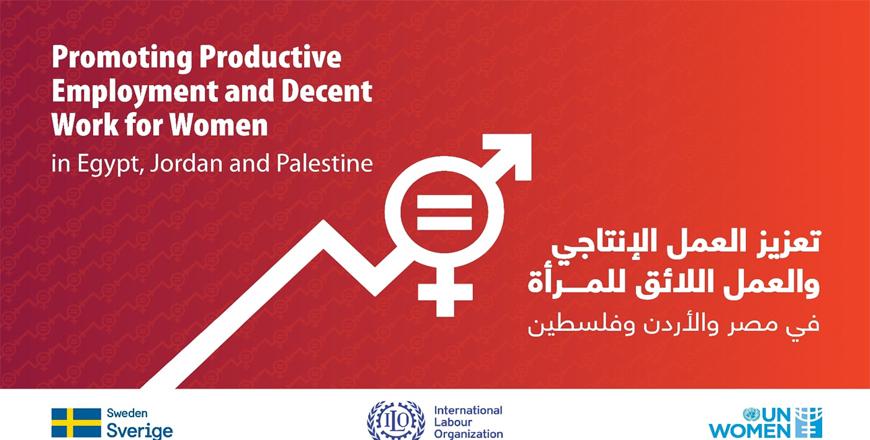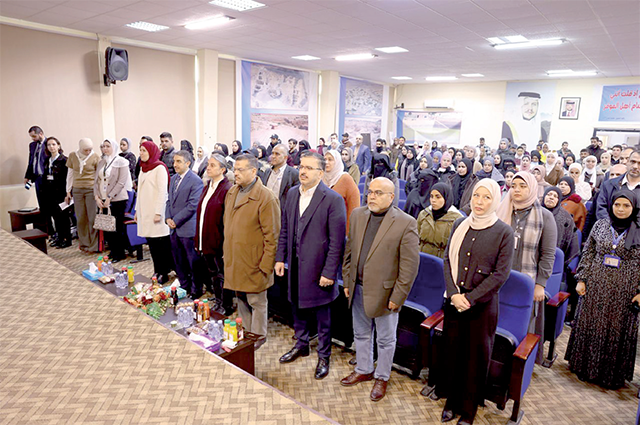You are here
Sweden’s State Secretary visits projects on women’s economic empowerment
By JT - Jun 08,2021 - Last updated at Jun 08,2021

Janine Alm Ericson, Sweden’s State Secretary for International Development Cooperation, accompanied by Carin Jämtin, director general of the Swedish International Development Cooperation Agency (SIDA) and Alexandra Rydmark, ambassador of Sweden to Jordan, pose for a group photo with private sector and civil society partners of the ‘Work for Women’ project implemented by UN Women and the ILO with the support of SIDA (Photo courtesy of UN Women)
AMMAN — During her first official visit to Jordan, Janine Alm Ericson, Sweden’s State Secretary for International Development Cooperation, accompanied by Carin Jämtin, director general of the Swedish International Development Cooperation Agency (SIDA), had the opportunity to meet partners and visit activities implemented under the regional programme “Promoting Productive Employment and Decent Work for Women in Egypt, Jordan and Palestine”.
Supported by SIDA, and implemented jointly by the International Labour Organisation (ILO) and UN Women, the programme seeks to support women to benefit from opportunities for better jobs, security at workplaces, equal access to professional development, social protection for families and better prospects for personal development and integration in society, according to a UN Women statement.
“When women participate in the labour market their economic empowerment increases, and the society’s economic growth increases. We welcome this opportunity of engaging with partners in Jordan on progress achieved in promoting women’s employment at all levels,” said Ericson.
The visit kicked off with the tour of a school in the Shafa Badran area, where the Swedish delegation met with members of the Coalition of Female Owners of Private Kindergartens and Schools, as well as representatives of the Social Security Corporation.
The tour aimed at discussing progress made by Jordan in expanding maternity and paternity policies and the key role of childcare institutions in supporting working women, particularly in the COVID-19 recovery phase, said the statement.
Young graduates from the “Women in Sports” pilot also joined the meeting and shared their experience venturing into non-traditional employment sectors.
With 75 young women who already completed the intensive training course in February, this initiative seeks to provide unemployed fresh university graduates with physical education degrees with secure jobs in the field.
“A gender-responsive working environment is a key enabler to support women’s participation in the labour market, particularly in non-traditional sectors. The examples here in Jordan demonstrate that this can also be a smart investment,” said Jämtin.
The delegation later visited a woman-owned industrial start up in Amman and engaged in a dialogue with private sector companies who have committed to the adoption of the Women’s Empowerment Principles (WEPs) — a set of seven principles offering guidance to business on how to promote gender equality and women’s empowerment in the workplace, marketplace and the community.
Jordan recently marked the 50 WEPs signatory milestone, making it the second highest country with WEPs signatories in the Arab states, impacting on average 36,450 employees by actively supporting a gender-responsive private sector that attracts, retains and promotes women and by promoting better business practices and policies, the statement said.
Salma Nims, secretary general of the Jordanian National Commission for Women, and civil society partners highlighted joint advocacy efforts in supporting the advancement of gender-responsive public laws, policies and systems, the statement said.
Under the joint programme, this is paired with capacity building opportunities to national institutions on gender-responsive budget to respond to the COVID-19 impact on the Jordanian economy and communities, including women-owned businesses.
“More companies in Jordan are taking concrete actions to promote women’s economic empowerment in the workplace and in the community. Through our holistic approach anchored in Women Empowerment Principles and national gender equality commitments, we work with partners to develop tools and knowledge to prioritise gender equality in business and investment decisions,” said Aisha Mukhtar, deputy pepresentative.
Related Articles
AMMAN — UN Women Jordan has launched the Women’s Empowerment Principles (WEPs) Jordan Network to enhance the role of the private sector in p
AMMAN — The Amman Chamber of Industry, in cooperation with UN Women, organised on Tuesday in the municipality of Al Muwaqqar an awareness wo
AMMAN — Finance and technology experts on Monday gathered to discuss gender equality, closing the digital gender gap and achieving sustainab













